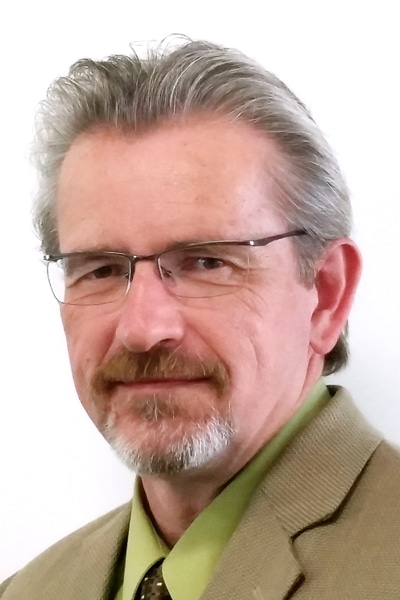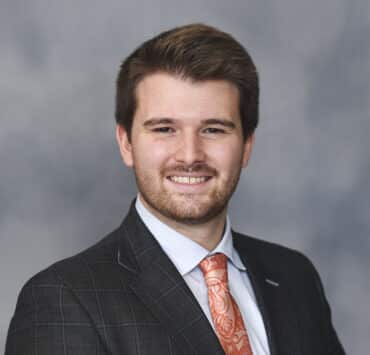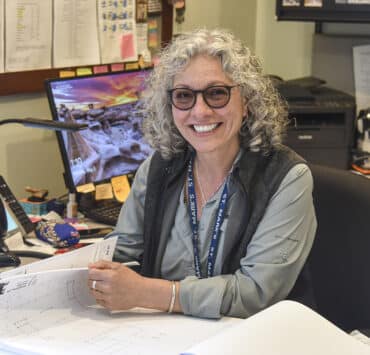|
Getting your Trinity Audio player ready...
|
Hermann Ebbinghaus, the first psychologist to study learning and retention, created something now known as “the forgetting curve” to demonstrate a stark reality—we forget much of what we learn. Educators who engage the senses and provide tactile experiences help students develop relevant skills and recall critical information. That’s why Miami Dade College (MDC) is offering three innovative programs that add hands-on training to the traditional classroom setting—and at its helm is Todd Manning.

The associate vice provost of construction management is responsible for delivering the specialized spaces where this new kind of learning can occur. Manning came to the public sector after starting his career in engineering consulting. “Those who work in higher education complete projects that benefit our up-and-coming generations,” Manning says. “And these buildings have shown me that we can take that to a whole new level.”
Three advanced spaces—a medical simulation center, a Tesla repair facility, and a School of Justice tactical training center—are elevating the student experience at southern Florida’s well known public institution. With 8 campuses, 21 outreach centers, and more than 100,000 students, Miami Dade College is the largest college in its state and one of the largest in the country.

In 2019, MDC opened the Center for Learning, Innovation, and Simulation, a $56 million facility where students are immersed in real-world situations that will prepare them for jobs in the healthcare sector. The complex medical simulation center provides a safe environment where students can perfect their skills using the latest advanced technologies including responsive mannequins that mimic hundreds of illnesses and conditions.
The 132,000-square-foot, 5-story facility includes a tiered lecture hall, 4 student lounges, 15 patient rooms, 10 exam rooms, and various medical labs. Several nontraditional spaces make the center special. A one-bedroom apartment equipped with overhead cameras allows instructors to run recorded home health simulations. Students who participate in the exercises immediately move to adjacent debrief rooms to watch and analyze video of their interaction with patient actors.
In another space, a full-size ambulance loaded with lights and sirens rocks on a hydraulic system giving students inside practice administering care in a moving vehicle. This hands-on training produces prepared clinicians who will reduce errors, improve safety, and enhance the patient experience when they start their careers.

Although Manning came to Miami Dade as the simulation center was nearing completion, he knows the challenges associated with delivering highly specialized facilities. “We’re trying to give students the reality of exactly what they will find in healthcare and we have to select the right, architect, engineer, and construction management teams,” he explains. To deliver the building on time, MDC’s facilities management department worked in a tight urban setting with students on campus. Contaminated soil forced a three-month removal and replacement process and a year of post-construction monitoring.
Another important project at MDC’s west campus is providing similar opportunities in automotive service technology. The college partnered with Tesla to create an intensive 12-week certificate program that prepares students for work as a Tesla service technician. After the college announced the program, known as Tesla START, Manning and his team set out to create this new Electric Vehicle Training Center.

They examined a local Tesla facility and worked in close partnership with the company to build a shop environment specific to Tesla vehicles. Tesla provided tools, equipment, curriculum, and uniforms. Together, they converted a warehouse into a state-of-the-art repair and teaching facility. The 5,965-square-foot double-height lab has seven vehicle bays, a high-tech classroom, a mezzanine observation deck, and specialty storage for Tesla’s proprietary equipment. Students who complete the program are qualified to take a job in any Tesla Service Center including those in nearby West Palm Beach and Coral Gables.
Later in the Capital Building Program, Miami Dade will open a third space in which students receive relevant experiential learning. Manning and his colleagues are constructing the School of Justice Tactical Training Center. The unique facility houses the School of Justice and will help train students and professionals in law enforcement, fire sciences, and law.
“We’re really pushing to prepare our students for jobs that are in demand,” Manning says. “Yes, we have live classrooms. Yes, we offer online classes. But there are certain programs that require hands-on exposure and experience.”

To bring the School of Justice Tactical Training Center to life, crews will transform an abandoned basketball gymnasium into a future-learning space filled with features like a mock courtroom, jail cells, a firing range (in the future), a rappelling tower, a virtual reality decision making lab, and an emergency dispatch center (in the future).
High-performing teams must work together to complete these unusual learning environments. Manning enjoys his leadership position but says the entire facilities management department deserves credit for any success they’ve achieved together. “It takes every single person making individual contributions that come together in a big way,” he says. “You can’t do this kind of work without a great team and great vision from the college leadership.”
As part of his job responsibilities, Manning attends Board of Trustee meetings. A college dean at one recent meeting gave a presentation regarding the use of technology in MDC programs and what graduates of those programs have accomplished. As Manning watched, he realized every student the presenter mentioned received education in a space his team had built. “We know that we’re just one piece of the system,” Manning says. “But we take pride in knowing that we’re handing these spaces over to staff and faculty who can do their work to educate the leaders of tomorrow.”


